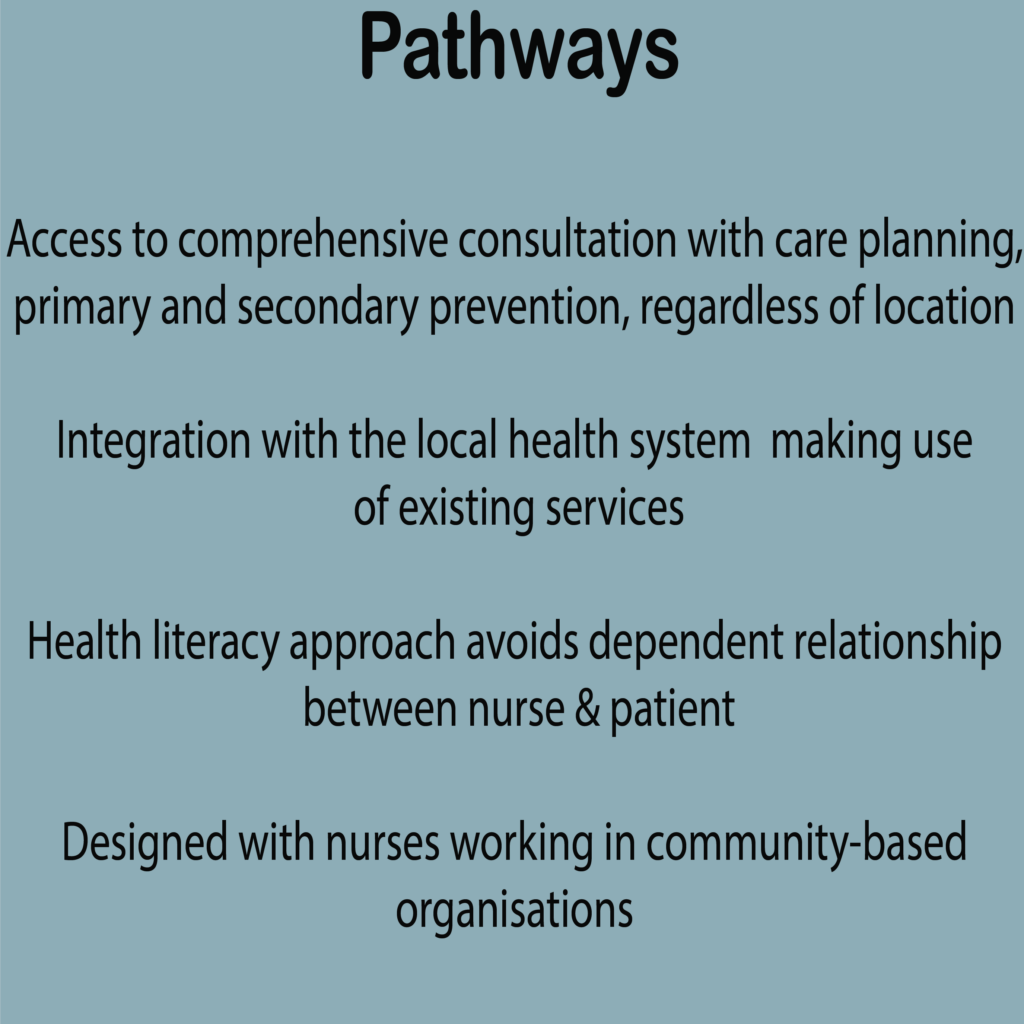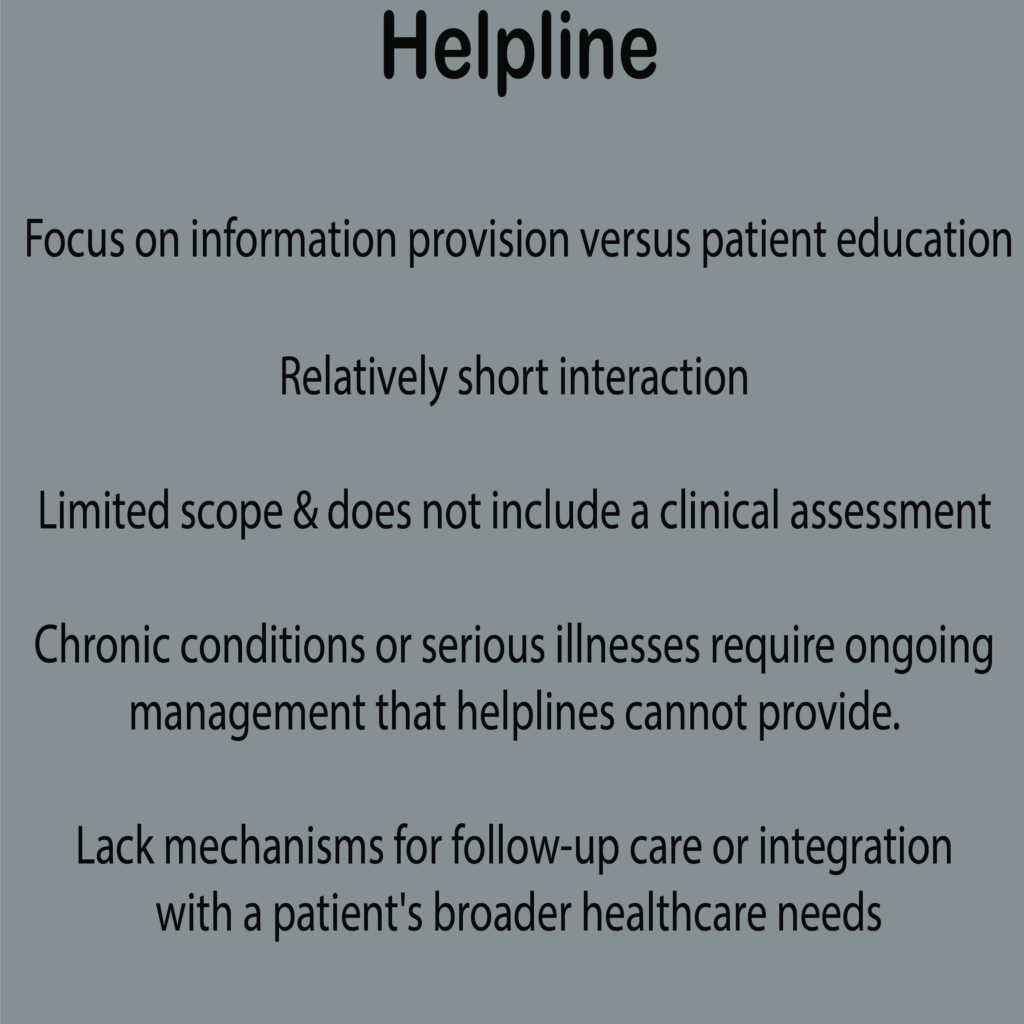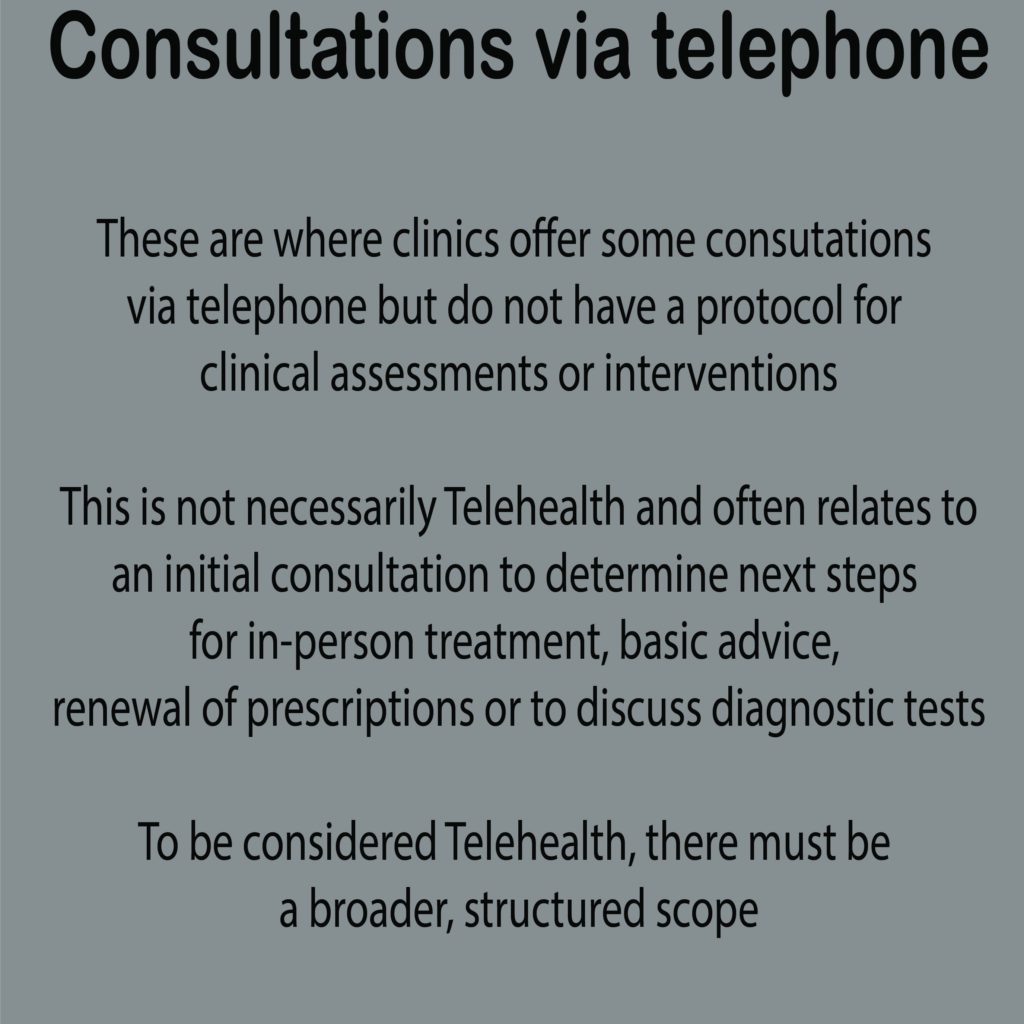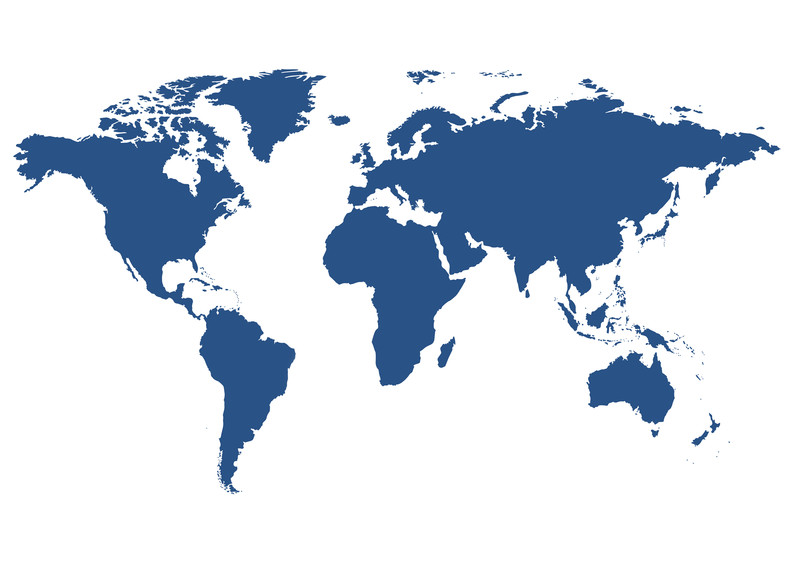Pathways is a nurse-led virtual clinic including assessments, interventions and nurse education, within a formal consultation.
Pathways enables better primary care and community-based management, access to services and supports the uptake of existing services and health initiatives – even in the most challenging settings.
“I’ve lived remotely for over 10 years and it was impossible to have consistent care from a GP or any other medical professional. Only after accessing your services via Telehealth was I able to find out which specialists I needed to see. As a direct result of your services I was able to access genetic counselling and genetic testing “
“The nurse was extremely knowledgeable very kind, courteous and caring. She made me feel very comfortable and safe and her knowledge on my condition was extremely professional and senior. There was so much that I didn’t know and she made it much easier for me to understand.”
“I can’t speak highly enough of the professionalism of Kate. Immensely compassionate, knowledgeable and professional. I am so very grateful for the opportunity to avail myself of this exceptional service. Thank you”

The Pathways difference



A health system navigation model of care focuses on educating patients about the services and treatments they need.
Pathways uses an access model of care.
This is more complex than the outdated navigation model of care and ensures patients not only know about the services and treatment they need, but have the ability to access those that are available to them.

Pathways nurses “sit” virtually within community organisations (patient groups, civil society, health charities) and are integrated in the health system, working with other key clinicians within the health system.
Pathways nurses implement on average 10,000 assessments and interventions per 1,000 patients

Pathways Specialist Nurses
Each Pathways nurse is supported through an intensive training period and assessments before commencing in clinical practice. What makes a Pathways nurse unique is their ability to use every available resource in the health system – even in situations where resources are scarce or restricted.
Three words often used to describe a Pathways nurse are:
Professional – Knowledgable – Compassionate
Nurses often have the closest relationship and most presence with patients and families.
Pathways nurses are no exception
Pathways nurses are supported in their roles through professional development, personal development, peer support and debriefing and other activities to protect their emotional health to avoid burnout. If we don’t protect and support our nurses, we risk leaving patients without the care they need.

Where can Pathways be implemented?
The ideal situation is to conduct a Pathways consultation via video however Pathways can be implemented anywhere that has phone service coverage.
All Pathways nurses are local to the setting in which they work however benefit from the expertise, central infrastructure and support offered by CCDR.


Recognition
2024: Australian Primary Care Nurses Association President’s Award
The Australian Primary Care Nurses Association President’s Award, is only given occasionally to nurses that leave a lasting legacy in the primary health care system. Kate Holliday received this award in 2024 for the lasting legacy of the work implemented through CCDR and Pathways. APNA considered Kate’s work to be exemplary and a strong example for all nurses as to what is possible when a nurse looks at how great care can be provided to their community.
* The combining of disciplines including nursing, nutrition, health promotion and health science to create powerful impact
* Research into the relationship between clinical research and its translation into policy, clinical practice and population health
* The reach of work including with government, industry, not-for-profits, NGOs and research organization at a local, national and international level.
* The impact of work which, among many achievements, also includes the development of the Pathways Telehealth Nurse Specialists program. The element of capacity building in this program was particularly noted by the APNA Board.
2022: Health Minister’s Nursing Trailblazer’s Award
2020: 100 Outstanding women nurse and midwife leaders



Pathways protocol development
The nurse-led assessments, interventions and scope of practice were confirmed in a formal pilot program over three years that assessed what is actually possible in a community-based, nurse-led Telehealth clinic. Through the pilot a number of assessments and interventions were confirmed with clinical guidelines developed. As we continue to innovate, additional assessments are interventions are tested.
* Surgical, hospitalisation and ED discharge assessment
* Urgent care prevention + continuity of care on discharge from urgent care
* Current and planned medication assessment
*Rural and regional access
* Initial triage assessment
* Diagnosis assessment and pathway
* Symptoms and comorbidities assessment
* Information assessment
* Symptom tracking
* Health literacy assessment
* Formal nurse education session
* Family history and risk
* Primary care assessment
* MDT assessment
* Clinical trial assessment
* Point of coordination assessment
* Emotional and social assessment
* Distress/anxiety tool
* Pain assessment
* Palliative care assessment
* Advance care planning
* Adherence monitoring
* Preventative health assessment
* Women’s health assessment
* Men’s health assessment
* Rehabilitation continuity of care
